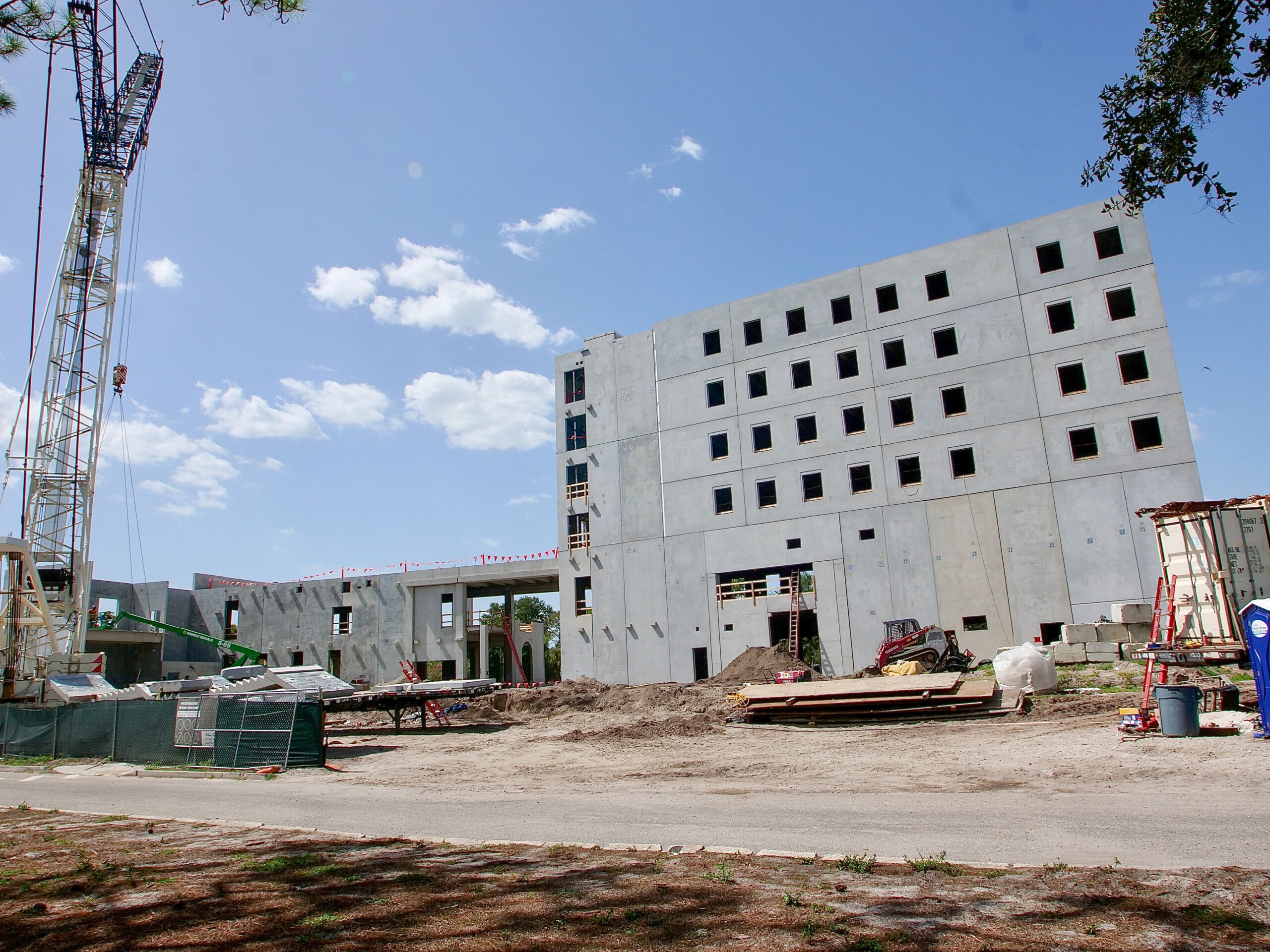The Argos Center at the University of South Florida (USF) is set to undergo a major transformation in the coming years, following the approval of a five-year redevelopment plan.
The plan, approved at a recent Board of Trustees (BOT) meeting, will see the demolition of Kosove Apartments, Beta Hall, and Betty Castor Hall, three dormitories dating back to the 1960s. In their place, approximately nine new five to six-story dorm buildings will be constructed to increase capacity and modernize the center.
BOT Vice Chair Michael Griffin expressed that the existing dorms are no longer reflective of the university’s identity, prompting the need for redevelopment.
The new facilities, which will include additional dining and community spaces, will be located behind Holly Apartments, spanning from the Marshall Student Center to Genshaft Drive.
USF Old Dorms (Credits: WUSF)
Construction is scheduled to commence in 2025, with the first building expected to open in 2027 and the entire project slated for completion by 2029. The redevelopment aims to replace 912 beds with around 2,100 new beds to address the growing demand for on-campus housing.
According to Ana Hernandez, the associate vice president of Housing and Residential Education, the redevelopment will create modern, student-focused spaces and is budgeted at $250 million.
The project is driven by the goal of providing attractive and affordable housing options, as well as showcasing a vibrant residential community near the new on-campus stadium.
A study conducted by Brailsford and Dunlavey Inc., a consulting company based in Washington, D.C., identified a need for over 2,000 apartment and suite-style beds. The demand for these types of accommodations is particularly high among first-year students but remains significant for upperclassmen as well.
To meet this demand, the predominantly traditional-style beds in the current Argos area will be replaced by apartment-style beds. This decision follows USF’s recent announcement that freshmen will not be permitted to live in apartment-style dorms.
The redevelopment plan also addresses USF’s new membership in the Association of American Universities (AAU), noting that 74% of AAU institutions have over 50% of their undergraduate students living in university housing.
Currently, only 18% of USF undergraduate students live on campus, a figure that is expected to increase by 3% with the completion of the Argos Redevelopment.
Hernandez emphasized that student housing is a strategic priority for USF, aligning with both student success and responsible fiscal stewardship goals.
